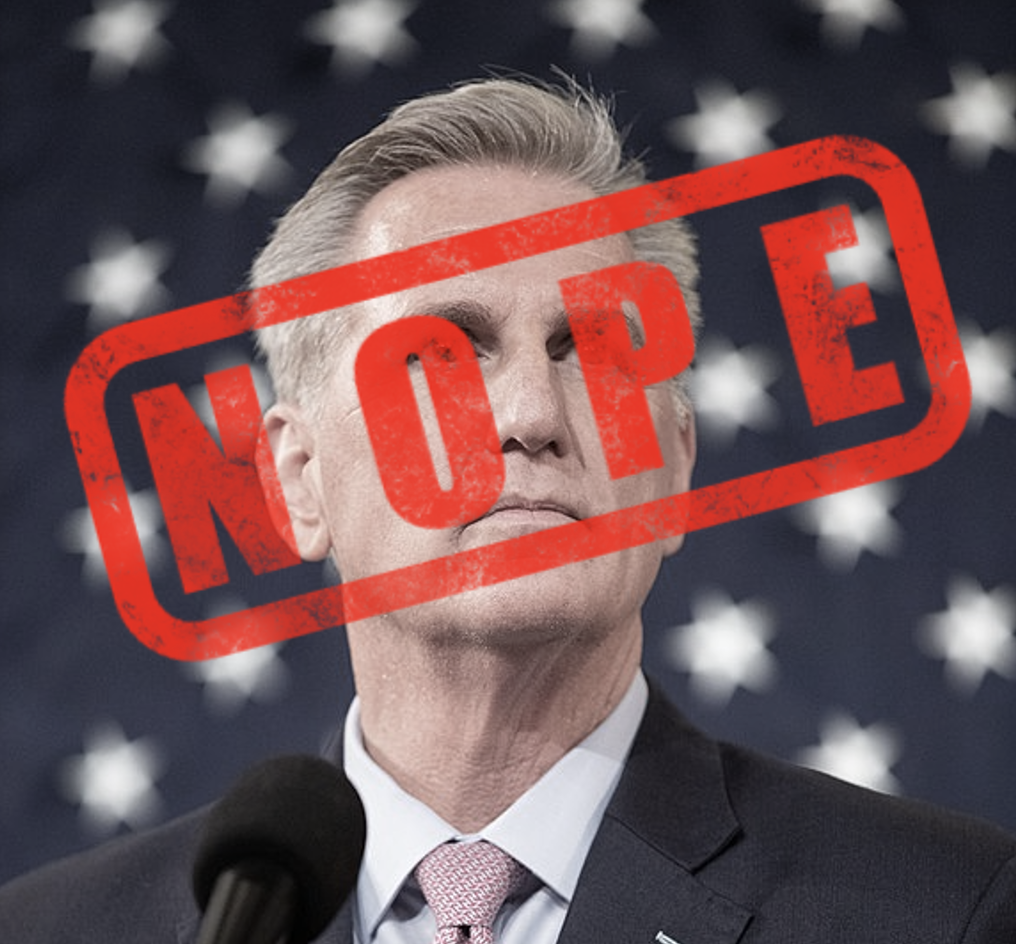Out Into History
Normally you have to die to lose your speakership early. Kevin McCarthy is not normal.

Kevin McCarthy on Tuesday became the first speaker of the U.S. House of Representatives to be voted out of the position in the middle of his first term. Traditionally, two years is the minimum tenure of a speaker – it’s not too uncommon that someone gets tapped to lead the House, only to see their party voted down to minority status in the next election. It takes some special backstabbing, though, for a speaker to find himself in McCarthy’s position… so special, in fact, that it just happened for the first time in 118 congresses!
McCarthy started his term with another unprecedented distinction, holding the record of most votes (3,091) in speaker elections since at least the Civil War. He got 192 from the minority Republicans in 2019, 209 in 2021, and 2,690 across 15 ballots in January. (Matt Gaetz, R.-Fla., was the last holdout then, and the author of his undoing today. There’s a lesson in there, all you who aspire toward any sort of personal integrity.)
Second place on this list? Sam Rayburn, who received 2,800 votes … and served as speaker for 17 years.
It is as yet unclear who will succeed McCarthy, nor when, nor what business if any the House can accomplish without a speaker. But that’s a problem for days to come: In McCarthy’s “honor,” here is the full list of speakers who served less than a term, and lived to tell about it. Spoiler alert: None of them are nearly as sordid as this one.
Langdon Cheves (Democratic-Republican, S.C.) – Jan. 19, 1814 – March 3, 1815 (408 days)
Cheves’s tenure was always meant to be temporary: He filled in for the popular speaker Henry Clay, while Clay was off in Europe negotiating an end to the War of 1812. The treaty wasn’t wrapped up until December, which means that Cheves (pronounced “chivis”) was in the saddle when Britain burned down Washington; the House had to relocate to a former hotel room. That doesn’t mean we should feel bad for old Langdon: After his political career, he became a loud voice for secession, and we know how that turned out.
John Bell (D., Tenn.) – June 2, 1834 – March 3, 1835 (274 days)
Like Cheves before him, Bell got his job when the president tapped the sitting speaker to go to Europe. This time the president was Andrew Jackson, the speaker was Andrew Stevenson, the job was Minister to Great Britain – and Bell beat James K. Polk in the election to replace him. The Tennesseean was never technically a Democrat, but rather belonged at the time to its predecessor Jacksonian party, that 19th-century curiosity assembled by Martin Van Buren to back “Old Hickory.” But Bell had fallen out with the president before his ascent to the speaker’s chair, and Jackson’s actual supporters boosted Polk to the speakership in the next congress, a stepping stone to Polk’s successful one-term presidency (and They Might Be Giants tribute).
Theodore Pomeroy (R., N.Y.) – March 3-March 4, 1869 (1 day)
This one is the result of a nice gesture. Schuyler Colfax resigned the speakership to assume the vice presidency, and the universally liked Pomeroy was set to retire the next day anyhow. The house elected him by acclamation, and … well, he got a kick out of it, thanking his colleagues for “the kind personal consideration which is involved in my unanimous election to this most honorable position.” (No one has called it that for a while…)
Kevin McCarthy (R., Calif.) – Jan. 7-Oct. 3, 2023 (269 days)
LOL.
